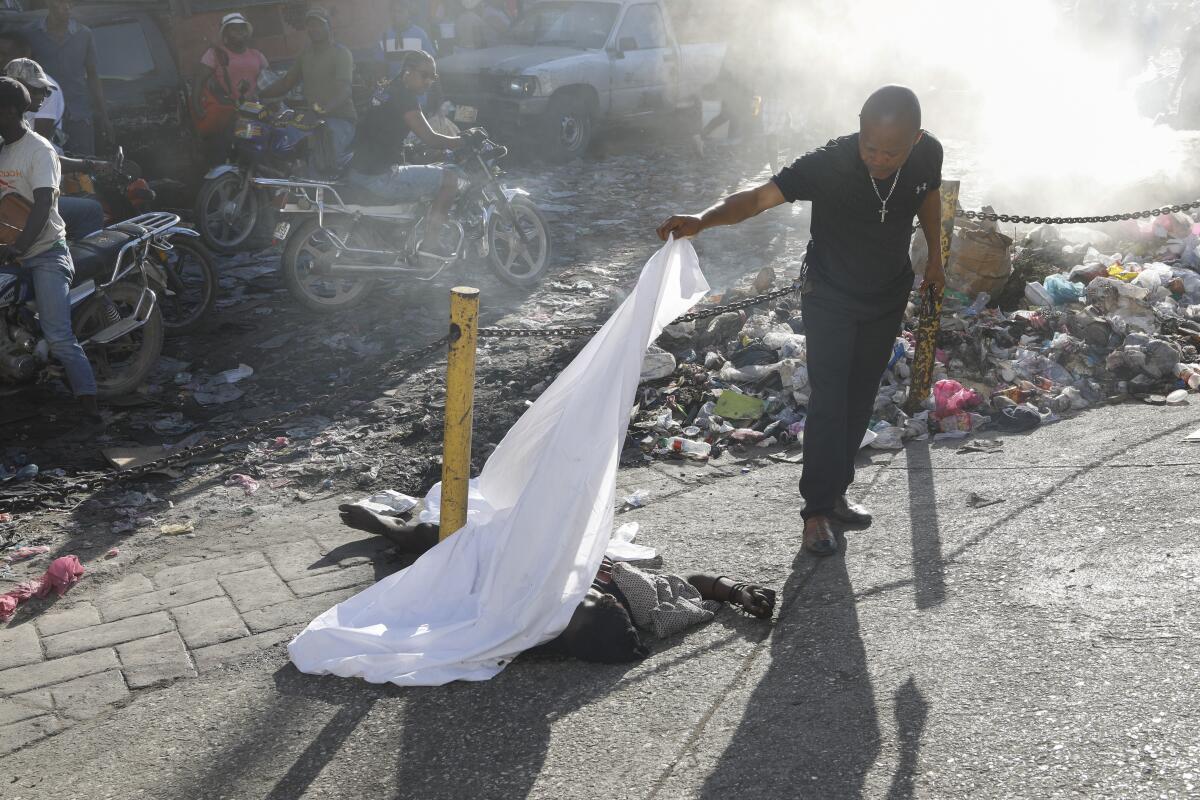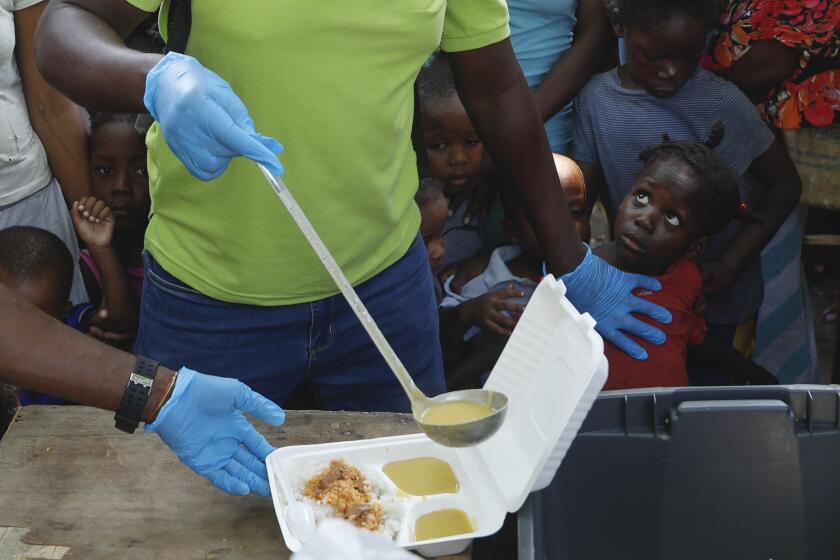Gangs unleash new attacks on upscale areas in Haiti’s capital; at least a dozen killed nearby

PORT-AU-PRINCE, Haiti — Gangs attacked two upscale neighborhoods in Haiti’s capital early Monday in a rampage that left at least a dozen people dead in surrounding areas.
Gunmen looted homes in the communities of Laboule and Thomassin before sunrise, forcing residents to flee as some called radio stations pleading for police. The neighborhoods had remained largely peaceful despite a surge in violent gang attacks across Port-au-Prince that began Feb. 29.
An Associated Press photographer saw the bodies of at least 12 men strewn on the streets of Pétionville, located just below the mountainous communities of Laboule and Thomassin.
Crowds began gathering around the victims. One was lying face up on the street surrounded by a scattered deck of cards and another was found face down inside a pickup truck known as a “tap-tap” that operates as a taxi. A woman at one of the scenes collapsed and had to be held by others after learning that a relative was killed.
“Abuse! This is abuse!” cried out one Haitian man who did not want to be identified as he raised his arms and stood near one of the victims. “People of Haiti! Wake up!” An ambulance arrived shortly afterward and made its way through Pétionville, collecting the victims.
Haiti struggles with poverty, a legacy of colonialism, and European and U.S. interference. But experts blame the latest violence in part on street gangs’ use by rulers.
“We woke up this morning to find bodies in the street in our community of Pétionville,” said Douce Titi, who works at the mayor’s office. “Ours is not that kind of community. We will start working to remove those bodies before the children start walking by to go to school and the vendors start to arrive.”
It was too late for some, though. A relative of one of the victims hugged a young boy close to his chest, with his head turned away from the scene.
The most recent attacks raised concerns that gang violence would not cease despite Prime Minister Ariel Henry’s announcement nearly a week ago that he would resign once a transitional presidential council is created, a move that gangs had been demanding.
Gangs have long opposed Henry, saying he was never elected by the people and blaming him for deepening poverty. But critics of the gangs accuse them of trying to seize power for themselves or for unidentified Haitian politicians.
Also on Monday, Haiti’s power company announced that four substations in the capital and elsewhere “were destroyed and rendered completely dysfunctional.” As a result, swaths of Port-au-Prince were without power, including the Cite Soleil slum, the Croix-des-Bouquets community and a hospital.
Some 1.4 million Haitians are on the verge of famine, and more than 4 million require food aid, sometimes eating only once a day or not at all
The company said criminals also seized important documents, cables, inverters, batteries and other items.
As gang violence continues unabated, Caribbean leaders have been helping with the creation of a transitional council. It was originally supposed to have seven members with voting power. But one political party in Haiti rejected the seat it was offered, and another is still squabbling over who should be nominated.
Meanwhile, the deployment of a U.N.-backed Kenyan police force to fight gangs in Haiti has been delayed, with the East African country saying it would wait until the transitional council is established.
In a bid to curb the relentless violence, Haiti’s government announced Sunday that it was extending a nighttime curfew through March 20.
Luxama and Joseph write for the Associated Press.
More to Read
Sign up for Essential California
The most important California stories and recommendations in your inbox every morning.
You may occasionally receive promotional content from the Los Angeles Times.











